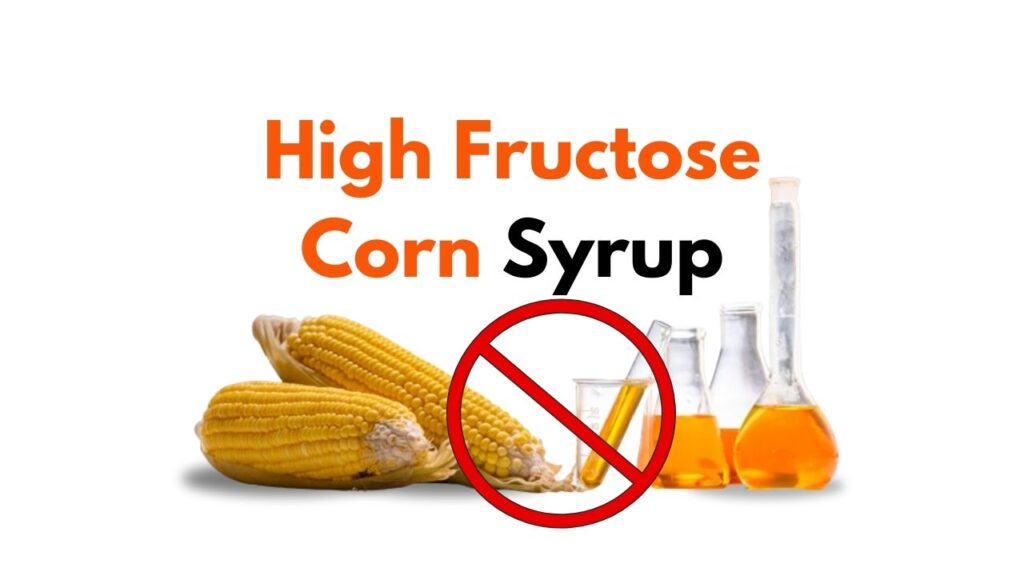The Dangers of High Fructose Corn Syrup

Introduction:
In the realm of sweeteners, high fructose corn syrup (HFCS) has become a ubiquitous presence in our diets, infiltrating a myriad of processed foods and beverages. While it’s commonly used as a cheaper alternative to traditional sugar, a growing body of evidence suggests that the widespread consumption of HFCS may have detrimental effects on our health. Lets see the reasons why high fructose corn syrup is considered bad for you and why it’s essential to be mindful of its presence in our daily diets.
Understanding High Fructose Corn Syrup
High fructose corn syrup is a sweetener derived from corn starch through a complex industrial process. It gained popularity in the late 20th century as a cost-effective alternative to sucrose (table sugar) and is widely used in the food and beverage industry due to its sweetening properties and ability to enhance shelf life. HFCS comes in various formulations, with the most common being HFCS-55, which contains 55% fructose and 45% glucose.
Metabolic Impact -
The association between high fructose corn syrup and weight gain has been the subject of extensive research. Unlike glucose, which stimulates the production of insulin and helps regulate appetite, fructose does not trigger the same satiety signals. This can lead to overeating and, consequently, weight gain.
Moreover, the metabolism of fructose in the liver produces triglycerides, a type of fat. Elevated levels of triglycerides can contribute to the accumulation of fat in the abdominal area, increasing the risk of obesity and related health issues, such as cardiovascular disease. The overconsumption of HFCS, often found in sugary beverages and processed foods, has been identified as a significant contributor to the obesity epidemic.
Impact on Heart Health -
High fructose corn syrup doesn’t just stop at promoting weight gain; it also has detrimental effects on heart health. Studies have linked the excessive intake of fructose to an increased risk of cardiovascular disease. The elevated triglyceride levels resulting from the liver’s processing of fructose can lead to the buildup of plaque in the arteries, a condition known as atherosclerosis.
Furthermore, HFCS consumption has been associated with high blood pressure, another risk factor for heart disease. The combination of obesity, insulin resistance, and elevated triglycerides creates a perfect storm for cardiovascular complications, making high fructose corn syrup a significant player in the development of heart-related issues.
Liver Overload -
s the primary organ responsible for metabolizing fructose, the liver bears the brunt of excessive HFCS consumption. The process of breaking down fructose in the liver can result in the accumulation of fat, leading to non-alcoholic fatty liver disease (NAFLD). This condition, once considered rare, has now become increasingly prevalent, paralleling the rise in HFCS consumption.
NAFLD, if left untreated, can progress to more severe liver conditions, including inflammation and scarring. The impact of high fructose corn syrup on liver health underscores the need for moderation and awareness of its presence in our diets.
Hidden in Plain Sight- The Sneaky Presence of HFCS -
One of the challenges in avoiding high fructose corn syrup is its prevalence in processed foods. Its sweetening properties and low cost make it an attractive choice for manufacturers, leading to its incorporation into a multitude of products, from sodas and candies to condiments and salad dressings.
Consumers often unknowingly ingest HFCS, as it can be listed under various names on food labels. These include glucose-fructose syrup, corn sugar, and corn syrup solids. This stealthy presence makes it imperative for individuals to scrutinize ingredient lists and opt for whole, unprocessed foods whenever possible.
To sum up everything, the pervasive use of high fructose corn syrup in our diets raises valid concerns about its impact on health. From metabolic disruptions and weight gain to cardiovascular risks and liver complications, the evidence against excessive HFCS consumption is compelling.
Conclusion -
As consumers, being informed about the sources and potential consequences of high fructose corn syrup is crucial. Opting for whole, nutrient-dense foods and scrutinizing food labels can empower individuals to make healthier choices. While complete avoidance may be challenging, moderation and awareness are key in navigating the sweet terrain of modern food choices and promoting overall well-being. In the quest for a healthier lifestyle, understanding the dangers of high fructose corn syrup is a vital step towards making informed and impactful dietary decisions.
Read also; The Cost of Bariatric Surgery in India
Why We Are?
- Asia's Trusted Bariatric Center
- Centre of Excellence
- Patient Trusted Highly Volume Bariatric Center in Mumbai
- EMI, Cashless & Mediclaim Facilities are Available
- Daily Patients Follow-up after Bariatric Surgery
- Patient Support Group Every Month
- Obesity Awareness Program
- Available with Latest Technologies
- 18+ Experience in Weight Loss Bariatric Surgery
- 300+ Weight Loss Diet Plan & Recipes
- Highly Trained & Experienced Bariatric Nutritionist
- Patient WhatsApp Chat Group
- & Many More
Medically reviewed by Dr. Manish Motwani, Bariatric & Metabolic Laparoscopic Bariatric Surgeon — Curated by Akansha Mishra






